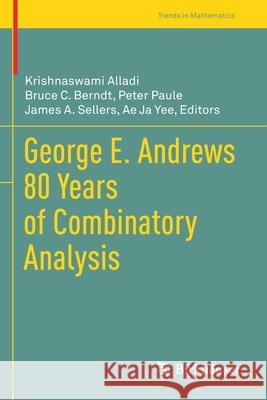George E. Andrews 80 Years of Combinatory Analysis » książka
topmenu
George E. Andrews 80 Years of Combinatory Analysis
ISBN-13: 9783030570521 / Angielski / Miękka / 2022 / 822 str.
George E. Andrews 80 Years of Combinatory Analysis
ISBN-13: 9783030570521 / Angielski / Miękka / 2022 / 822 str.
cena 603,81
(netto: 575,06 VAT: 5%)
Najniższa cena z 30 dni: 539,74
(netto: 575,06 VAT: 5%)
Najniższa cena z 30 dni: 539,74
Termin realizacji zamówienia:
ok. 16-18 dni roboczych.
ok. 16-18 dni roboczych.
Darmowa dostawa!
Kategorie:
Kategorie BISAC:
Wydawca:
Birkhauser
Język:
Angielski
ISBN-13:
9783030570521
Rok wydania:
2022
Ilość stron:
822
Waga:
1.12 kg
Wymiary:
23.39 x 15.6 x 4.14
Oprawa:
Miękka
Wolumenów:
01
Dodatkowe informacje:
Wydanie ilustrowane











